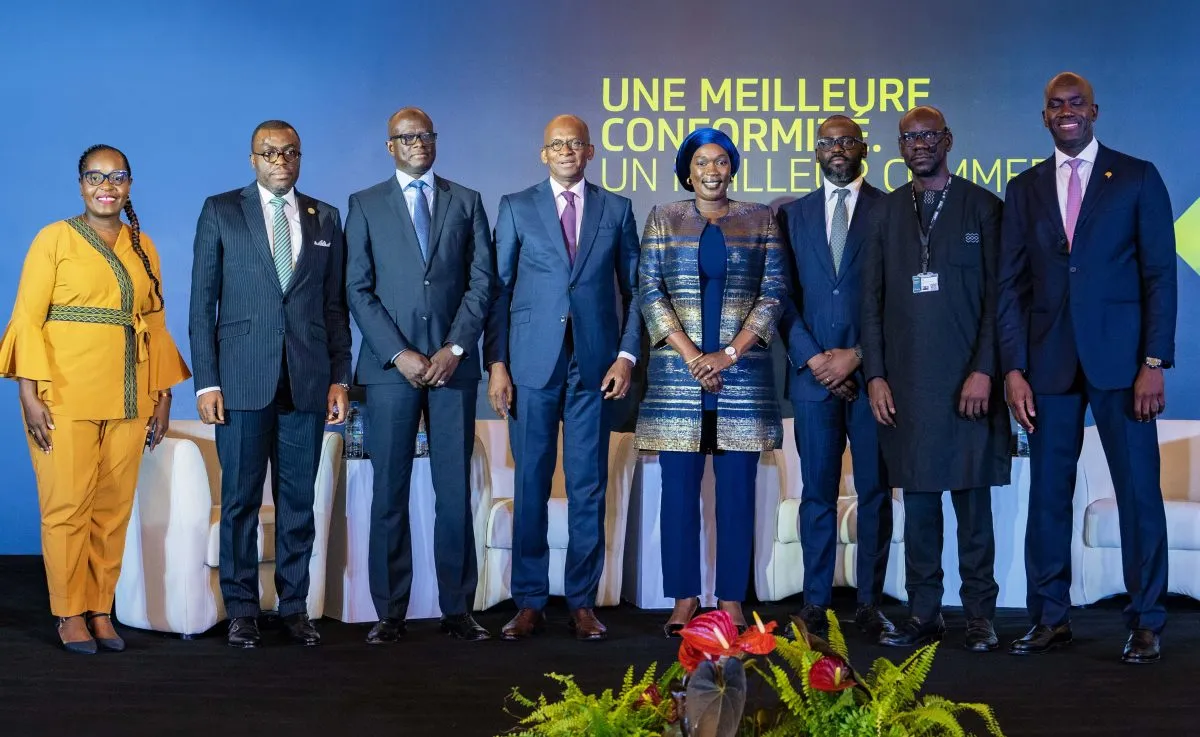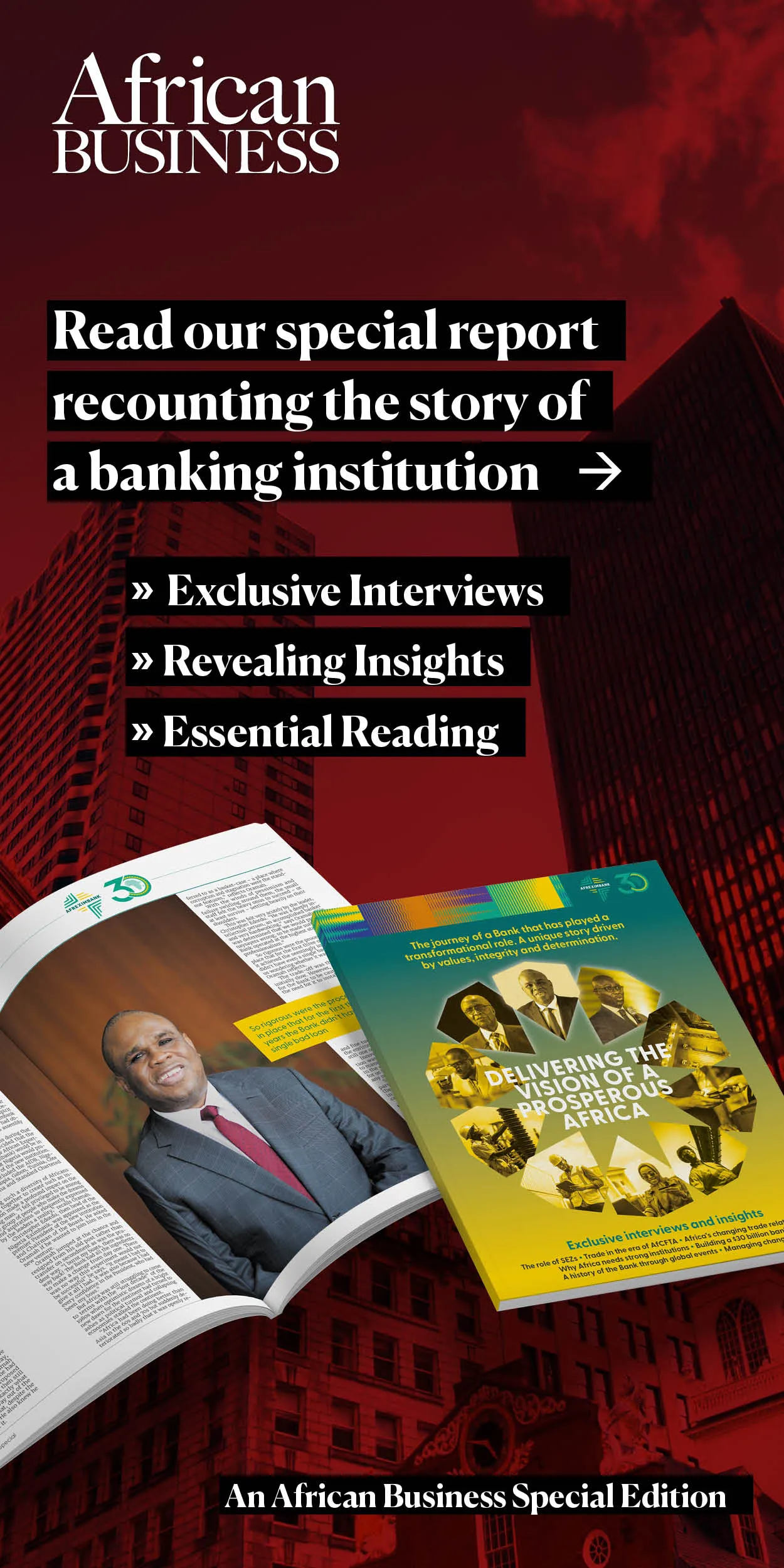This article was produced with the support of Afreximbank
On 4, 5 and 6 September the Senegalese capital witnessed the arrival of the continent’s leading banking compliance experts, as well as regulators and international trade professionals. No fewer than 33 nationalities were represented at the 8th forum on compliance in Africa, organised by the African Export-Import Bank (Afreximbank) in partnership with the Intergovernmental Action Group against Money Laundering in West Africa (GIABA). “Better compliance must generate better and greater trade for Africa. Trade compliance is a responsibility for all businesses and is particularly important for those involved in the areas of import / export,” said Idrissa Diop, Compliance Director at Afreximbank, ahead of the opening of the forum.
Compliance has become a key component to trade – as well as a constraint. The figures are quite sobering, highlighting the importance for companies (and banks) getting up to speed around this. Maureen Nneka Mba, director of the MANSA Initiative, put forward some data during her speech, based on a report on financing in Africa over the last ten years. “The share of SME trade finance applications rejected by banks increased by 20% between 2013 and 2019, while banks’ participation in trade finance decreased from 92% in 2014 to 71% in 2019.”
The same survey highlighted customer solvency (30%) and insufficient collateral (25%) as the main reasons for rejections. “But at this stage,” added Maureen Nneka Mba, “16% of banks involved in trade finance cite compliance (that is poor KYC [know-your-customer]) as the main reason for non-approval of trade finance applications during the 2015-2019 period, compared with less than 1% in 2013-2014.”
During the three days of debates in Dakar, the players discussed at length the continent’s challenges in terms of banking compliance, including the role of the different stakeholders (authorities, companies, etc.).
Informal economy hindrance
The very structure of the economy, most of which is informal, hinders the emergence of regulation. And ‘the often-low level of education hinders understanding of these issues, which are nonetheless necessary for the sustainable development of trade’, says Cellou Diallo, Compliance Director at Ecobank Senegal and responsible for the West African francophone countries.
The topics discussed at the Forum also focused on the new requirements of the Financial Action Task Force (FATF) for the identification of Ultimate Beneficial Owners (UBOs).
The FATF is an intergovernmental organisation whose mandate is to set international standards to prevent money laundering and the financing of terrorism. It recently agreed stricter global rules on beneficial ownership to prevent criminals from hiding their illegal activities and dirty money behind secret corporate structures.
The FATF has detailed these new rules in new recommendations published in November 2023. The 16th recommendation is designed to enable the authorities and financial institutions to identify more quickly and easily the true “beneficial” owners of companies. “The aim of all this is, in part, to prevent the next Panama Papers,” said one of the panellists at the start of a debate at the forum.
Bassirou Makha Racine Kane, representative of the Central Bank of West African States (BCEAO), said: “We are tackling the issue of identifying the final beneficiary head on.”
He recalled the institution’s role in managing monetary policy, but also in guaranteeing economic stability. “Guaranteeing the transparency and accountability of financial transactions will ultimately enable us to have a stable and reliable business climate.”
“In Africa, the main difficulty encountered by banks is precisely that of obtaining information on the identity of the people who ultimately hold controlling interests, whether moral or physical,” explains Cellou Diallo, of the Ecobank group. “We have a real problem with the quality of data in our geographies. The digitisation of administrations is not uniform, so we are not always sure that when there are changes to a company, the changes are automatically registered,” he adds.
For his part, Manické Niang, an expert at GIABA, points out that “implementing Recommendation 16 in local legislation is not that difficult, but in practice there may be problems with access to the declaration of the ultimate beneficial owner.”
The declaration can be made online, provided that the person has access to the internet and a computer, and as a last resort by written correspondence.
Balancing discretion
A number of speakers at the forum also referred to the difficulties encountered by the ultimate beneficiary owner (UBO) in terms of compliance and identification in finding “the right balance” between the fight against money laundering and the financing of terrorism and the need for business discretion, personal interests and data protection.
“We are in an African context where certain texts drawn up in the West sometimes pose problems for our regulations (which vary greatly depending on the 55 states), or even do not fit in with our way of doing business,” commented one of the speakers.
Incorrect identification of the UBO can have consequences for all parties involved. For banks, it can mean a loss of confidence on the part of customers and investors, while at national level, sanctions can be imposed.
The FATF has drawn up grey- and blacklists to encourage uncooperative countries to comply (see interview with Manické Niang).
The host of this forum, Senegal, is one of 12 African countries on this list. After three years on the list, the Senegalese players are in the process of coming off it, and shared their experiences, concluding that “the value of compliance is significant and identifying the UBO is good for business.”
Senegal is in the process of innovating on this last point, with the creation of a register of associates or shareholders (over 2%) in the extractive sector (mining and oil), in order to limit anonymity in the sector.

 Sign in with Google
Sign in with Google 
